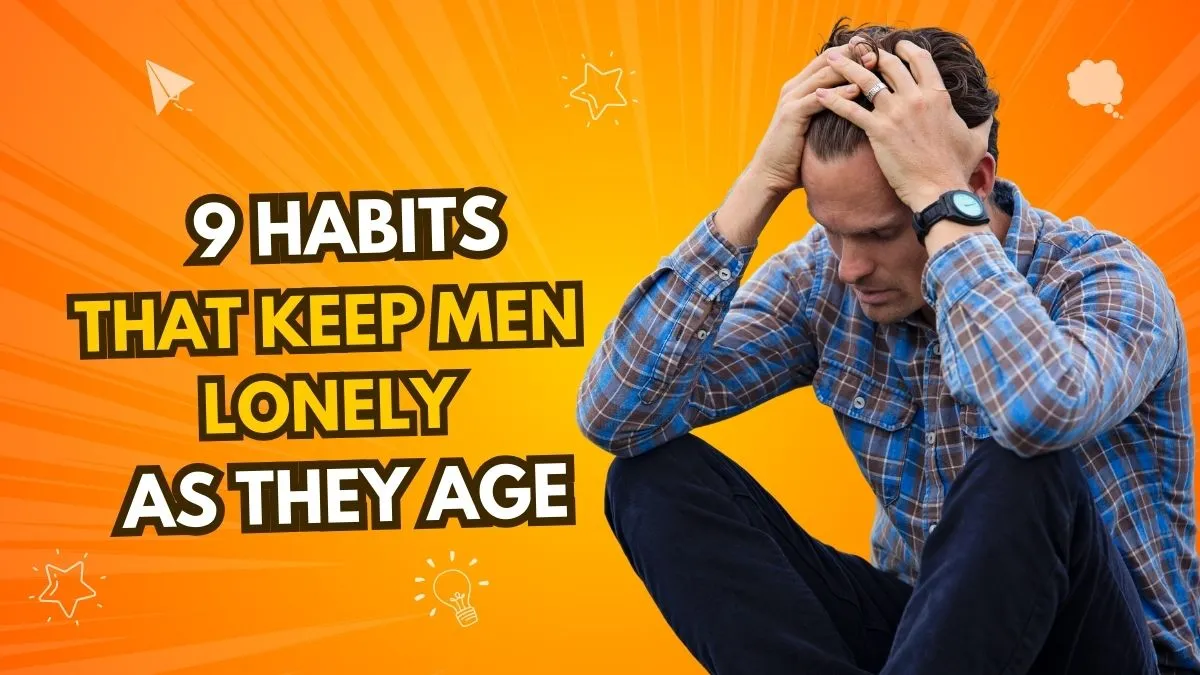Men Who Struggle to Make New Friends as They Get Older Almost Always Display These 9 Behaviors

Have you ever looked around and realized your circle hasn’t changed in years? That every group chat feels like a relic from a decade ago? If you’re a man in your 30s, 40s, or beyond, you’re not alone. Men who struggle to make new friends as they get older often don’t realize they’re unknowingly blocking the very connections they crave. It’s not about being “unlikable”—it’s about patterns that quietly shut doors.
1. They Wait to Be Invited—Instead of Reaching Out First
Initiative dies quietly in adulthood. Many men fall into the trap of expecting others to plan, text, or include them. But friendships after 30 aren’t built on spontaneity—they’re built on effort. If you’re always waiting for the other person to make the move, you’re outsourcing your social life. And most people are just as hesitant as you are.
2. They Confuse Acquaintances with Real Friends
Seeing the same coworkers, gym buddies, or neighbors doesn’t mean you have friends. Real friendship requires vulnerability, consistency, and emotional presence. Men who struggle to make new friends as they get older often mistake surface-level interactions for intimacy. You can know someone for years and still never let them see you.
3. They Avoid Emotional Honesty Like It’s Weakness
There’s a silent rule many men carry: “Don’t talk about feelings. Don’t ask for help.” But deep connections form in the space between “How are you?” and the real answer. If you only share the highlights—job wins, vacations, kids’ milestones—people can’t bond with the full picture. And they won’t stick around for the surface.
4. They Prioritize Utility Over Connection
Hanging out only when there’s a reason—a game to watch, a project to finish, a favor to ask—turns friendship into a transaction. Real bonds grow in unstructured time: random calls, awkward silences, shared lulls. If every interaction has a purpose, people start to wonder: Do they like me, or just what I can do?
5. They Assume Others Won’t Want to Connect
“I’m too old to start over.” “They’ve got their own lives.” “I don’t want to bother anyone.” These thoughts sound humble, but they’re often pride in disguise—assuming you already know the answer without asking. Men who struggle to make new friends as they get older frequently reject others before they’re even rejected.
6. They Stick to Familiar Circles—Even When They’ve Outgrown Them
Comfort is the enemy of growth. Some men cling to old friendships that no longer fulfill them, not because they’re happy, but because it’s safer than starting over. But staying in a shrinking circle won’t fill the loneliness—it just makes the silence louder over time.
7. They Don’t Show Up Consistently—Then Wonder Why No One Does
Friendship is a rhythm. It’s showing up when you’re tired. It’s replying to a text even if it’s just “This made me think of you.” Inconsistency sends a quiet message: You’re not a priority. And eventually, people stop trying because they’ve learned not to expect you.
8. They Use Humor to Deflect, Not Connect
Sarcasm, irony, and constant joking can be social armor. They keep people laughing—but also keep them at a distance. When every serious moment gets a punchline, people stop bringing their real selves around you. You become the fun guy everyone likes, but no one truly knows.
9. They Don’t Invest in New Social Spaces
If your only social outlets are work and family, your chances of meeting new friends are slim. Friendships grow in shared experiences—classes, volunteering, hobby groups, meetups. Men who struggle to make new friends as they get older often stay in the same routines, expecting connection to find them. But you have to step into new rooms to meet new people.
Read Also: 10 Lessons from Navajo Code Talkers That Will Change How You Lead, Communicate, and Trust
It’s never too late to change the pattern. The truth is, most people want deeper connection—they’re just as afraid, just as unsure how to start. If you see yourself in any of these behaviors, that’s not failure. It’s awareness. And awareness is where real change begins.





